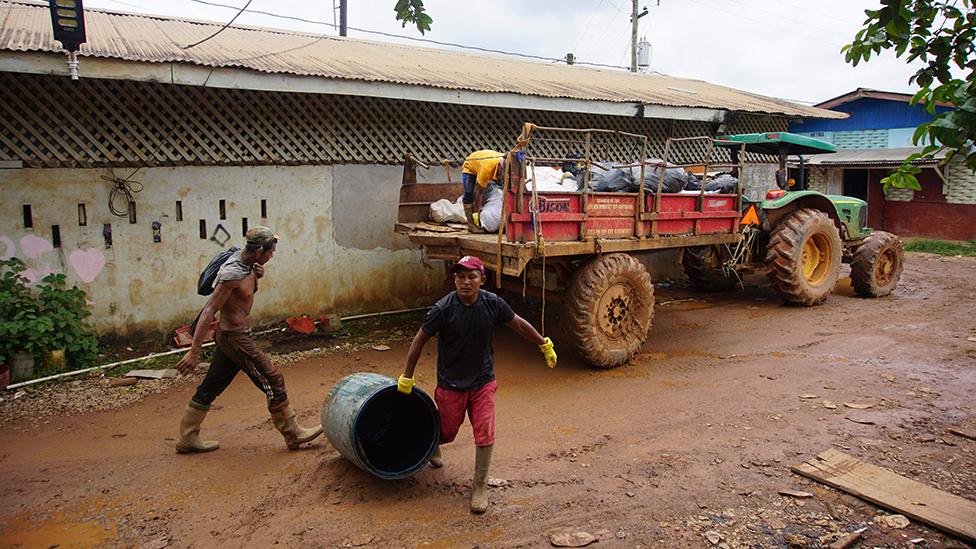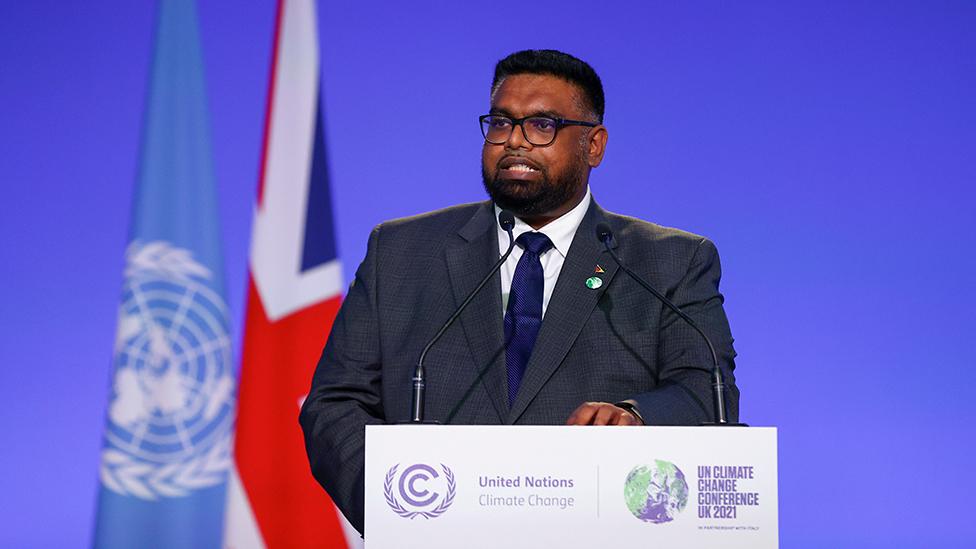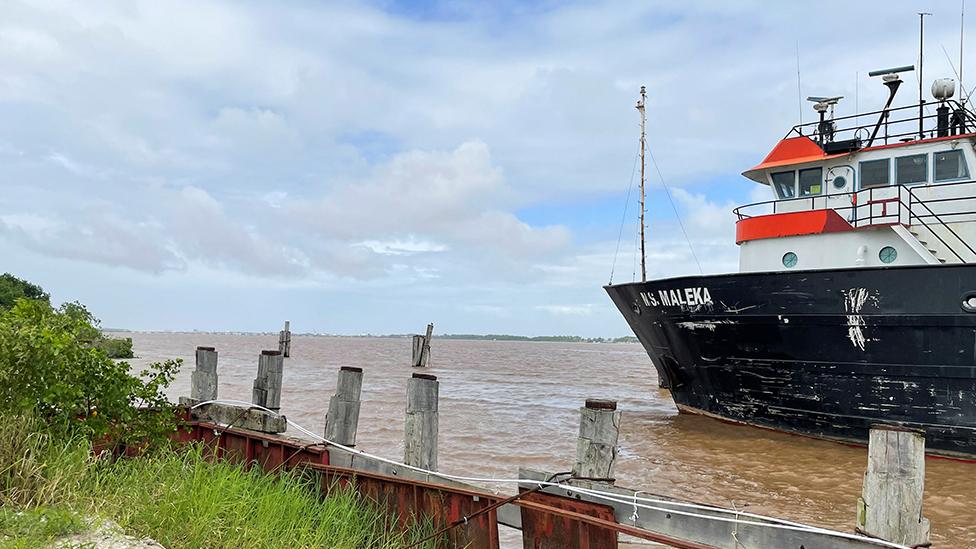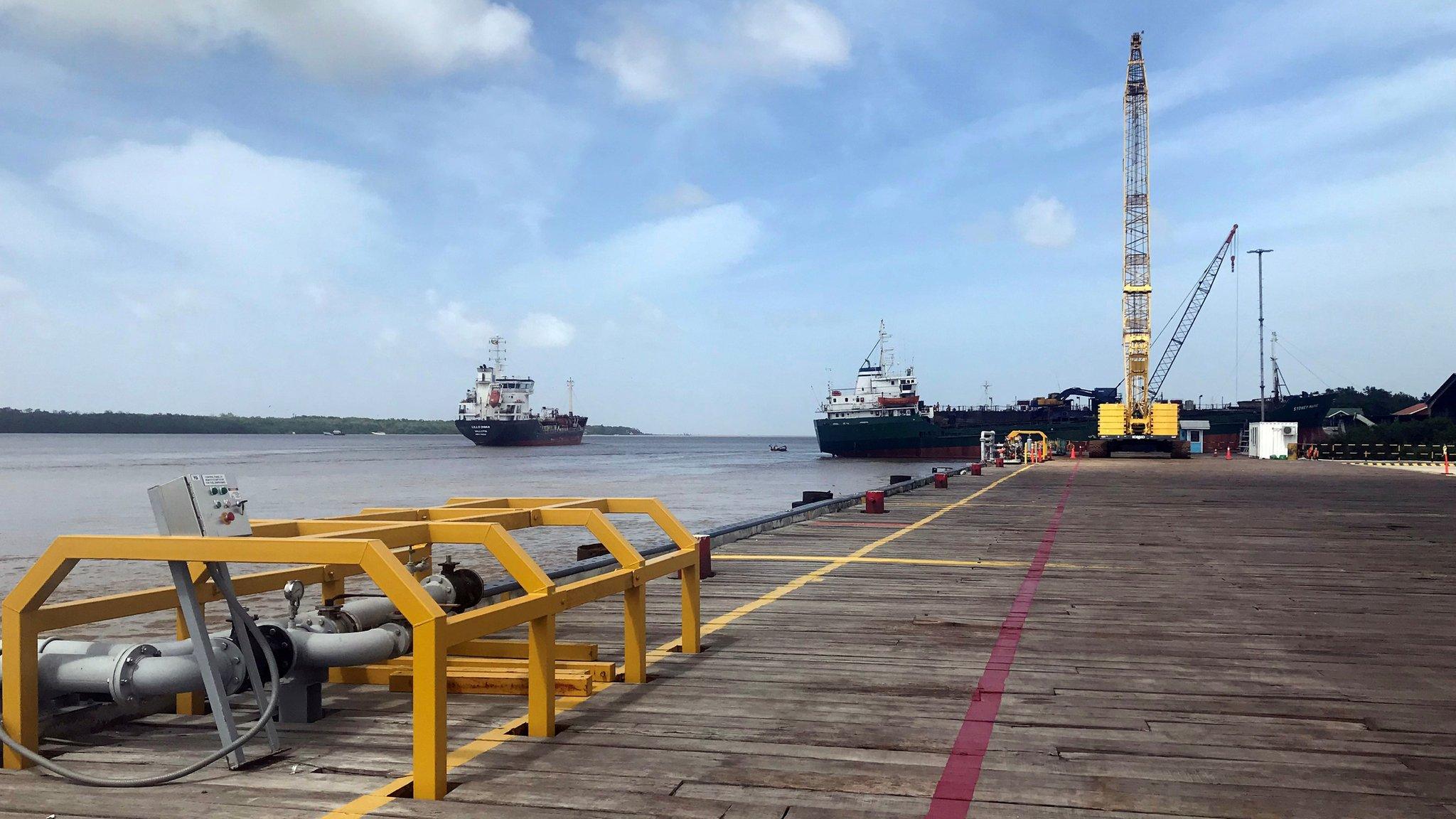Guyana scrambles to make the most of oil wealth
- Published

Guyana's economy has boomed in recent years, aided by the discovery of offshore oil deposits
President of Guyana Irfaan Ali has acknowledged "time is not on our side" as the South American country scrambles to make the most of its newfound oil wealth before it is too late.
Over the past decade, Guyana has found huge amounts of oil and gas under its coastal waters.
It now boasts reserves of about 11 billion barrels.
That puts it in the top 20 in terms of its potential, on a par with countries such as Norway, Brazil and Algeria.
The small country, which borders Venezuela, Brazil and Suriname in South America's north-east corner, currently boasts the fastest-growing economy in the world.
But the discoveries come as the planet is trying to wean itself off fossil fuels to tackle climate change. Under the 2015 Paris Agreement, countries have vowed to reduce their greenhouse gas emissions to net zero by 2050. That means trying to cut down on oil use.
Speaking to the BBC from the capital Georgetown, President Ali accepted that "time is not on our side" as it ramps up oil production, although he added that "to say we are racing against time is stretching it".

President Irfaan Ali addressed COP26 attendees in Glasgow in 2021
And he said that even if the world met its net zero targets - something he doubted would happen - it would still need to rely heavily on fossil fuels, even after 2050.
"As I speak to you, 53% of the world energy mix comes from oil and gas," Mr Ali said. "Even if we are to achieve the full commitment, you're looking at 35% to 40% of the world's energy mix still coming from oil and gas. So I don't see realistically an immediate medium-term end to oil and gas.
"Even if we end up in a situation in 2070 and beyond - where, let's say, 40% of the energy mix comes from oil and gas - who determines who produces that 40%? These are questions that must be answered, because you can't just decide, 'You are out, you are in.' That is colonisation in a different way."
The oil bonanza has transformed the Guyanese economy. According to the International Monetary Fund (IMF), it grew by 62% last year and is expected to add another 37% this year. That is the fastest growth rate anywhere in the world.

New marine facilities are to be built off the coast
And the wealth will potentially be shared between a relatively small number of people. Although Guyana is the size of Britain, it has a population of just 800,000 people. Most of it is rainforest.
So the potential for per capita economic growth is huge. It has already gone up sharply. In 2015, when US oil major Exxon made its first discovery in Guyanese waters, gross domestic product per head was $11,000 (£9,380). This year, the IMF predicts it will top $60,000.
Mr Ali said his country had no plans to join the Opec oil cartel and insisted his government would respect the contracts his predecessor signed with Exxon - even though some activists have criticised them as excessively generous.
"The deal could have been better for Guyana," Mr Ali said. "Exxon had a good deal signed by the last government but, look, for us, the sanctity of contract is very important. We cannot go back and renegotiate."
He said he was confident Guyana would win its territorial dispute with Venezuela, which claims two-thirds of Guyana's territory as its own. The dispute dates from the late 19th Century and a case is open before the International Court of Justice (ICJ).
"We are very clear as to where our borders are and we are very confident about our case,"Mr Ali said. "There have already been two rulings and both were in favour of Guyana. We have actively encouraged Venezuela to participate in this process and to respect the outcome of the ICJ."
Listen to Gideon Long's interview with President Ali in full on Business Daily on the BBC World Service.
- Published3 August 2020

- Published2 March 2020
